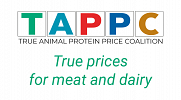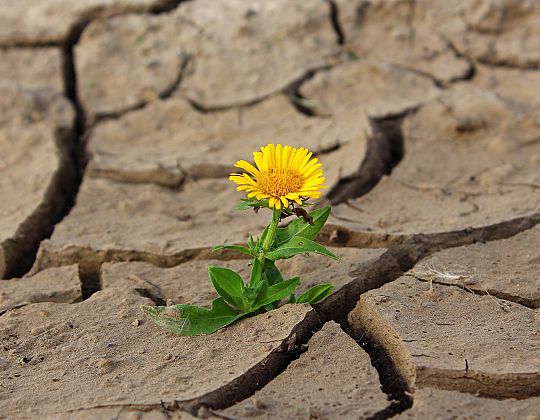Coalition of 27 Countries and 100+ NGOs demand Just Climate Finance
Innovative agri-food finance mechanisms will unlock more than 40 billion USD in revenue for the Loss and Damage Fund.
The Declaration
The 29th UNFCCC Conference of the Parties (COP29) will end tomorrow in Baku, Azerbaijan. The major focus of the Finance COP is on the New Collective Quantified Goal on Climate Finance and the operationalisation of the Loss & Damage Fund. Furthermore in the COP28 Declaration on Food and Agriculture 162 countries committed themselves to take action in their agri-food systems. This COP it is vital to target both issues holistically. For this reason, a coalition of 27 countries from the Pacific and Africa will send the following declaration today to the COP29 Presidency, all 38 OECD countries, and China.[1]
“We believe that COP29 and UNFCCC Climate Conferences thereafter can only be successful if:
a. The closing statement includes “transitioning away from animal protein overconsumption according to national or global dietary guidelines by implementing GHG-Emission pricing mechanisms in agri-food systems.”
b. It urges the EU Commission, OECD countries, and China to lead the way towards harmonised GHG-emission pricing in agri-food systems.
c. It uses at least 20% of the revenue of above-mentioned GHG-Emission pricing mechanisms to finance the Loss and DamageFund.”
Countries and supporting organisations can still sign the Declaration here, until mid June 2025 (UNFCCC conference Bonn).
Innovative Finance Mechanisms
COP29, also known as the “Finance COP” for its emphasis on updating global climate finance commitments, will focus heavily on adopting a new climate finance target. This marks the first time in 15 years that countries will reevaluate the amount and type of finance needed to combat climate change since the $100 billion annual target was set in 2009. Centred around the New Collective Quantified Goal (NCQG), all attending countries and stakeholders will have to renew their commitment to generating enough climate finance for the coming crucial decades. Whether public or private, the NCQGs are dependent on new innovative finance mechanisms to ensure the investments needed to combat, and prevent climate change. A significant part of this commitment will be to the Loss and Damage Fund, which materialised during COP28 to ensure reparations for damages induced by the ongoing climate crisis.
“One-third of global emissions are from agriculture, but our current climate policies don’t target agriculture and food. This is the need of the hour. 27 Countries urge OECD countries and China to start GHG emission pricing in their food systems, using at least 20 percent of tax revenue for the Loss and Damage Fund. 1 euro per kg meat extra in these countries would generate 186 bn euro per year”. (Jeroom Remmers - Director, TAPP Coalition).
Global Food System Pollution
The global food system is responsible for 33% of all greenhouse gas (GHG) emissions, with livestock production alone contributing between 14.5% and 20%. Meat consumption currently far exceeds national and global dietary guidelines, with an average of 71.4 kg per capita annually in OECD countries, compared to 26.6 kg in developing nations. With livestock herds expected to grow by 46% by 2050, the projected rise in emissions threatens the goals set by the Paris Agreement, including the critical target of net-zero emissions by 2050. The coalition highlights the broader environmental impacts of livestock farming, including deforestation, land-use change, and biodiversity loss, with 13 billion hectares of deforestation occurring annually due to agricultural expansion. The declaration echoes warnings from recent reports by the IPCC and FAO, which have called for reducing meat consumption in high-income countries as a critical step in addressing the climate crisis.
“Fair pricing for meat and dairy has the potential to be a win for all - it’s good for our health, our animals, our air and our water. But for this transition to be a success it needs to be feasible and affordable for all parties involved, including consumers, farmers and the producers of our food.” (Ingeborg ter Laak, Member of EU Parliament for the Christian Democrats).
The coalition represents over 400 million people from all over the world, who stress that without decisive steps to address the environmental impact of meat production, future climate conferences risk falling short in the fight against climate change. By promoting sustainable diets and an innovative finance mechanism for the Loss and Damage Fund, the coalition believes COP29 and future UNFCCC climate conferences can set a clear path toward a more just and climate-resilient future.
Replies from New Zealand and Canada
Ministers from New Zealand and Canada replied to the letter sent to them. Simon Watts, Minister of Climate Change and Minister of Revenue from New Zealand wrote in a letter to TAPP Coalition: "The Government has also committed to a fair and sustainable pricing system for agriculture by 2030. To support this work, we are standardising a methodology for use by existing emissions calculators and farm management tools to support pricing in the future and onfarm emissions measurement by 2025".
Steven Guilbeault, Canadian Minister of Environment and Climate Change since 2021, replied in a letter to TAPP Coalition and ACAI that Canada supports the Loss and Damage Fund and future innovative funding mechanisms.
Not for publication:
Here you can find recordings of our three press-conference during COP29:
11 November: Analysing the COP28 Food Declaration (160 countries NDC's) and the new FAO SOFA report 2024 on Hidden Food Costs, on fiscal actions and GHG-emission pricing.
Watch online:
Powerpoint Presentation, click here.
12 November: Making the Polluter Pay – Using Agri-Food Emission Pricing to Finance the Loss & Damage Fund
Watch online: https://unfccc.int/event/tapp-coalition-making-the-polluter-pay-using-agri-food-emission-pricing-to-finance-the-loss-damage
Powerpoint presentation, click here.
21 November: EU Agri-Food ETS, Danish GHG-emission livestock tax or meat tax; models for OECD countries and China?
Watch online:
Powerpoint presentation, click here.
(All video-footage of the press conferences may be freely used with a notice to info@tappcoalitie.nl)
Contact Information:
Willem Branten Jeroom Remmers
Public Affairs Consultant Director TAPP Coalition
willembranten@tappcoalitie.nl info@tappcoalitie.nl
+31 6 43240854 (Whatsapp Only) 0031 6 22407712 Local number 21/22 November: +99451836241
Africa Climate Action Initiative
The Africa Climate Action Initiative (ACAI) is an initiative of the CAP network that works alongside African communities on the front lines of climate change. Our mission is to improve the climate mitigation and adaptation response of African nations and their communities, while building solidarity between Canadian and African communities fighting climate change.
Contact: contact@africaclimate-actioninitiative.org
True Animal Protein Price Coalition
True Animal Protein Price (TAPP) Coalition contains over 70 NGOs, food companies and farmer organisations, focused on fair food prices including external environmental and health costs. We advocate for (fiscal) subsidies for healthy food and food with low carbon footprints and a socially just transition.
Contact: info@tappcoalitie.nl




